| Sign In | Join Free | My frbiz.com |
|
| Sign In | Join Free | My frbiz.com |
|
| Categories | CNC Lathe Parts |
|---|---|
| Brand Name: | Yexin |
| Model Number: | ST65 |
| Certification: | ISO9001:2015 |
| Place of Origin: | Dongguan, China |
| MOQ: | 1 pcs |
| Price: | Negotiable |
| Payment Terms: | Paypal, L/C, D/A, D/P, T/T, Western Union |
| Supply Ability: | 186000 pcs/month |
| Delivery Time: | 3-12 work days |
| Packaging Details: | Standard Export Carton, Wooden Case, etc. |
| Application: | Aerospace, Automotive Industry, Consumer Electronics, Medical, Furniture, Woodworking, etc. |
| Material: | Stainless Steel, Aluminum, Brass, Plastic, Mild steel, Titanium, Wood, Copper, etc. |
| Processing: | Turning, Milling, Broaching, Drilling, Wire EDM, Rapid Prototyping, etc. |
| OEM, ODM: | Yes |
| Surface Finish: | Polishing, Anodizing, Painting, etc. |
| Tolerance: | ±0.01mm-0.005mm, etc. |
| Drawing Format: | PDF, CAD, STEP, STP, IGES, IGS, SLDPRT, 3DM, SAT, etc. |
| Keyword: | CNC Lathe Parts |
| Equipment: | CNC Machining Centers |
| Company Info. |
| Dongguan Yexin Intelligent Technology Co., Ltd. |
| Verified Supplier |
| View Contact Details |
| Product List |
CNC machining, which stands for Computer Numerical Control machining, involves the automated
removal of material from raw stock based on computer-generated instructions.
This versatile process can be applied to nearly any material, ranging from expanded polyurethane
foam to nickel superalloys. Common applications of CNC machining include the fabrication of parts
for various industries, ornamental furniture, and the production of turbine blades.
The cost associated with CNC machining is heavily influenced by factors such as required precision,
surface quality, quantity, material composition, and the overall complexity of the part.
Product Details
CNC machining encompasses a wide range of materials, with three main categories:
plastics, soft metals, and hard metals. These materials are versatile and suitable for various
machining applications.
Examples of materials used in CNC milling include aluminum, bronze, copper, ceramics, plywood,
various types of steel, stone, wood, and zinc, among others.
Certain materials, such as aluminum and mild steel, are favored by machinists due to their ease
of workability and excellent properties, making them industry standards for many applications.
| Common Materials | |
| Name | Description |
| Aluminum | High machinability and ductility, good strength-to-weight ratio. |
| Stainless steel | High tensile strength, corrosion and temperature resistant. |
| Mild steel | High machinability and weldability, high stiffness. |
| Brass | Low friction, excellent electrical conductivity, golden appearance. |
| Copper | Excellent thermal and electrical conductivity. |
| Titanium | Excellent strength to weight ratio, used in aerospace, automotive and medical industries. |
| ABS | Common thermoplastic, impact resistant, easy to machine. |
| Nylon | Excellent mechanical properties, thermal, chemical and abrasion resistant. |
| POM | High stiffness, high accuracy, low friction, easy to machine. |
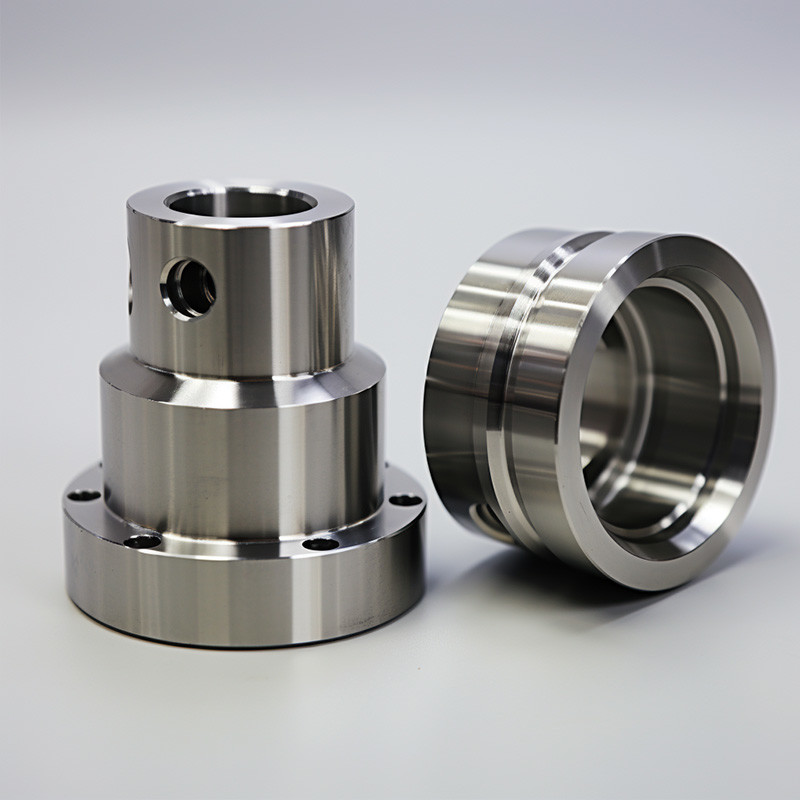
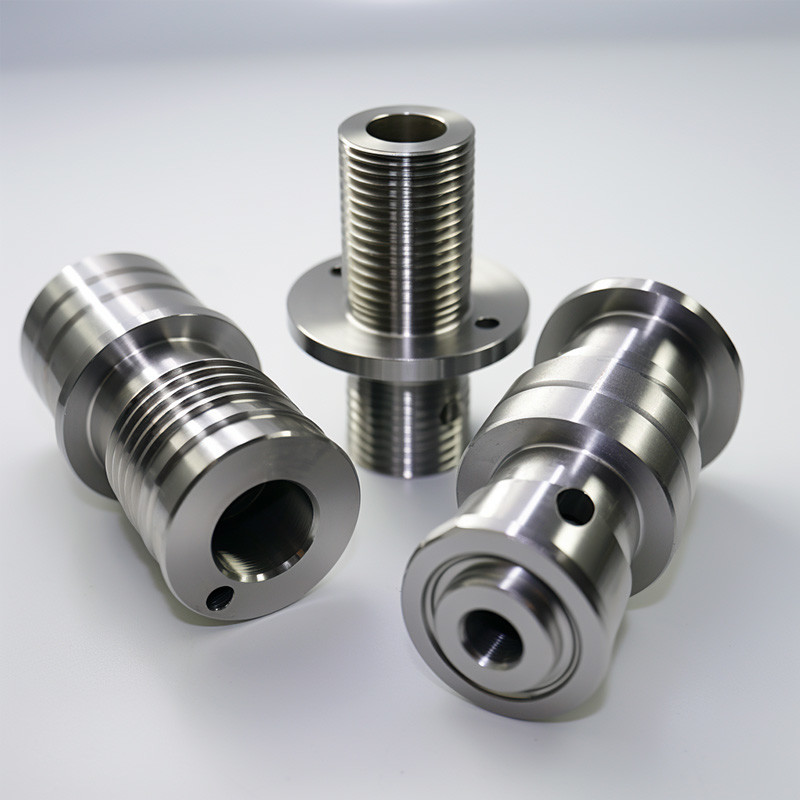
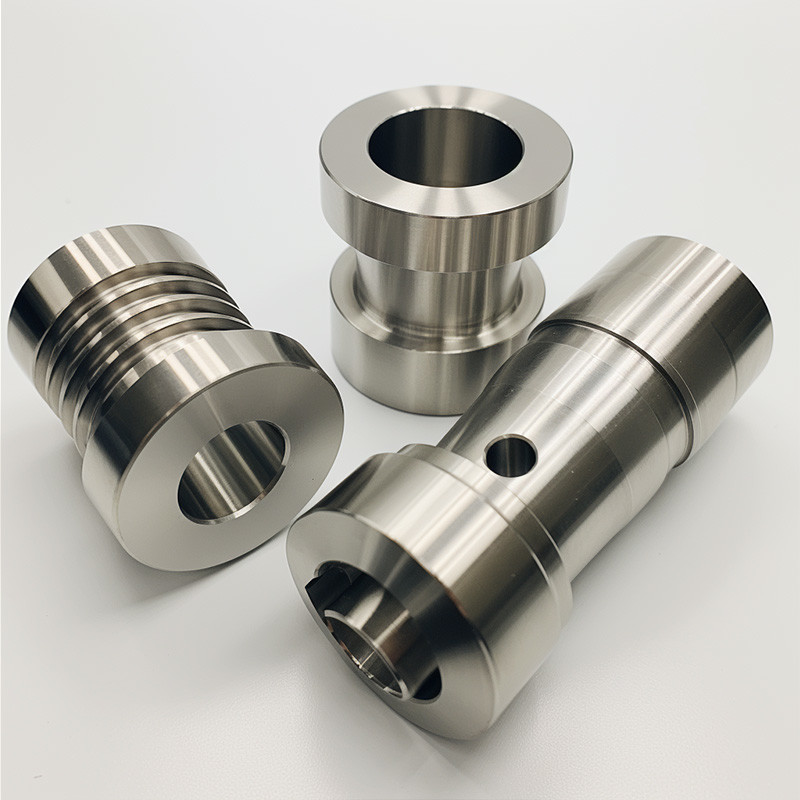
Post-processing and surface finishes for CNC machining
CNC-machined parts as they emerge from the machine often exhibit visible tool marks,
a feature that may not align with your specific part requirements.
Fortunately, there exists a multitude of post-processing techniques aimed at enhancing the
surface appearance and elevating attributes such as wear resistance, corrosion resistance,
and chemical resistance.
Methods like anodizing, bead blasting, and powder coating present viable options for refining
the final presentation of your custom parts, allowing you to achieve the desired surface
quality and performance characteristics.
| Surface Finishes | ||
| Name | Applicable to | Machining marks |
| As machined | Metals, Plastics | Visible, light surface scratches |
| Smooth machining | ||
| Fine machining | Metals | Slightly visible |
| Polishing | Metals | Removed on primary surfaces |
| Bead blasting | Metals | Removed for non-cosmetic, removed on primary surfaces for cosmetic |
| Brushing | Metals | |
| Anodizing Type II | Aluminum | |
| Anodizing Type III | Aluminum | Visible under anodizing |
| Black oxide | Copper, Stainless steel, Alloy steel, Tool steel, Mild steel | Visible |
| Powder coating | Metals | Removed |
| Brushed + electropolishing | Stainless steel | Removed on Primary surfaces |
Specialist Industries
Turning, a manufacturing process known for producing rotational, axi-symmetric parts, boasts the
capability to create components with intricate features such as holes, grooves, threads, tapers,
and contoured surfaces.
This method is particularly adept at fashioning limited-quantity items, notably custom-designed
shafts and fasteners used in prototypes. Moreover, turning serves as a valuable secondary process
to enhance or add features to parts manufactured through alternative methods.
Examples of products crafted through turning include camshafts, crankshafts, baseball bats, bowls,
cue sticks, signboards, musical instruments, as well as table and chair legs.
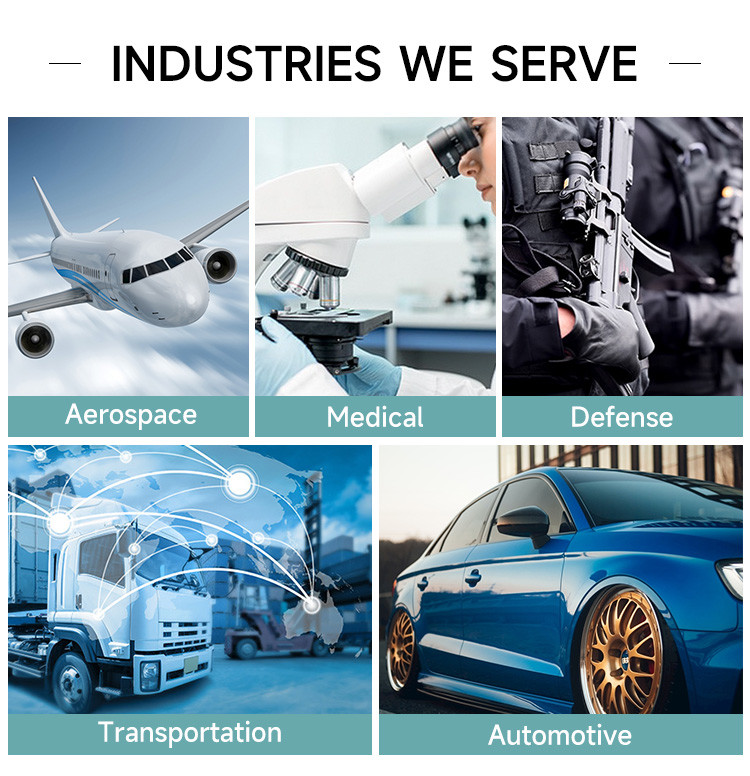
Company Profile
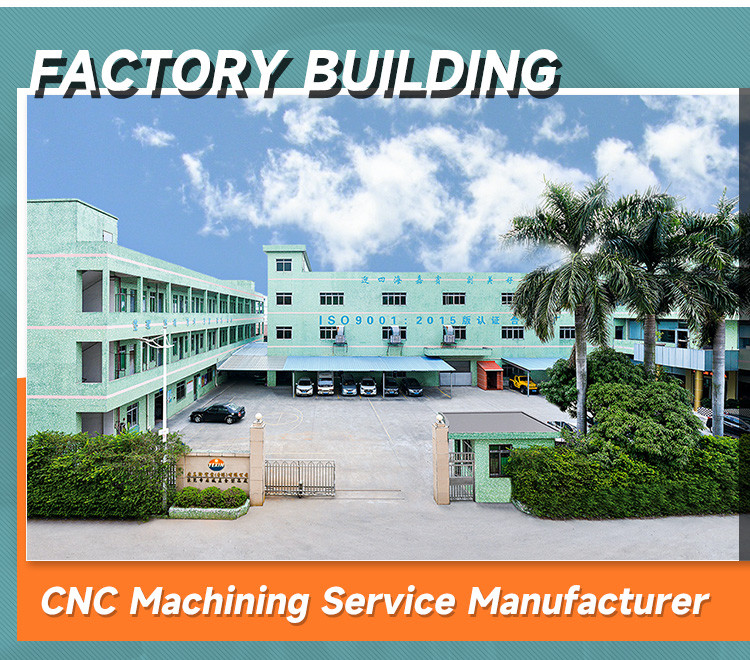
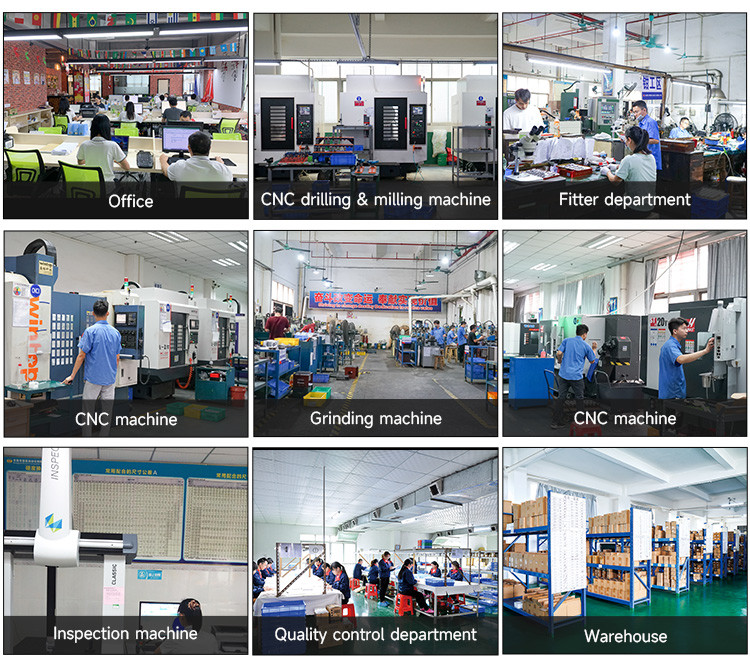
FAQ's
1. What are the advantages of CNC machining?
The advantages of CNC machining are prominent, with rapid prototyping and efficient full-scale
production at the forefront. A distinguishing feature is its capacity for high precision and accuracy
in manufacturing, extending to tight tolerance machining for CNC parts spanning various sizes.
Beyond this, CNC machining offers unmatched flexibility in addressing volume needs, pricing
considerations, lead times, and the utilization of a broad spectrum of materials and finishes.
2. Quality Assurance
Customer trust is a cornerstone of our values, and we are dedicated to upholding it through
the implementation of established quality management principles. Our focus is on enhancing
customer satisfaction and perpetually improving our performance and capabilities.
With a wealth of experience spanning decades, we have consistently met stringent regulations
and maintained PPAP compliance, particularly in the automotive, aerospace, and medical device
industries. These industries serve as benchmarks for the high standards we apply to all the
products we manufacture.
3. The cost of CNC machining a part depends on a range of factors, some of which are
listed below:
The cost of CNC machining a part is shaped by a variety of factors, including:
1. Material: Material selection introduces cost variations, with
materials like aluminum being
more economical to machine compared to others like Inconel, attributed to factors such as tool
wear and cutting speeds.
2. Complexity: Parts featuring intricate designs incur higher
machining costs. The complexity
of surface shapes, for instance, significantly influences overall machining expenses.
3. Tolerances: The precision demanded by dimensional tolerances
impacts CNC machining costs.
Imposing overly tight tolerances on non-critical features can lead to unnecessary cost escalation.
4. Surface Finish: Achieving mirror finishes demands specialized
tools and machining strategies,
extending machining time and, consequently, increasing costs.
5. Quantity: Production volume is a key determinant of costs.
Low-volume production tends to be
costlier per part, as initial setup and programming costs are distributed over a smaller production run.

|